ReactJS is the second most popular web framework among developers worldwide (as of 2022) after Node.js. So if you are building a website or app, you will likely work with it at some point or another. However, while ReactJS is favored for its simplicity as a relatively new web framework, many people are still trying to figure out the best practices for working with it.
That’s why we’ve compiled a list of 7 best practices for developing with ReactJS. Developing with best practices in mind will ensure that you come up with the most straightforward and efficient code possible to bring your web app to the next level.
What Is ReactJS?
ReactJS (also known as React.js or just React) is an open-source JavaScript library Meta created for user interface (UI) development. It’s a declarative and component-based library that plays well with any other codes you may be using. Overall, ReactJS is simple and easy to use. Additionally, it is a very versatile library that you can use for making mobile, single-page, or server-rendered apps.
Challenges of developing with ReactJS
While it’s far from the most complicated library, there are still some weaknesses you’ll need to work around when making applications with ReactJS.
Simple applications run well; however, you may face performance issues when working on more complex or feature-heavy applications. For example, ReactJS can suffer from slow rendering times or memory leaks. This is especially noticeable with long lists, especially those with images.
Another issue is you can end up with overly verbose code if you aren’t careful. Since it’s a relatively new library, there are a lot of approaches to coding that can end up in a messy product. This can make it challenging to scale, get new developers up to speed, and maintain the application.
Fortunately, these seven best practices should help combat issues with performance and verbosity.
7 Best Practices
With these seven best practices, you can make lean and mean applications that take advantage of everything ReactJS offers.
1. Organize your folders!
Yes, we know the organization isn’t fun. But you’ll save yourself a world of pain if you organize your files in a way that makes sense. It’s a must for making your code scalable and maintainable.
There are a few ways to organize your files and folders. None of them are intrinsically better than another—you can really make or follow any logical order—but the important thing is that you’re consistent.
For example, you can organize by components or file type. It’s also helpful to have reusable components or utility functions grouped in a separate folder.
2. DRY your code
DRY (or Don’t Repeat Yourself) is a good mantra in general, but it’s especially helpful with ReactJS. This is because ReactJS makes heavy use of the reusability principle. Using common elements instead of writing a bunch of individual ones will save you time and energy, reduce the size of your code, and make your application faster.
Also, review your code for overlap and repetitive code, in general, to see what you can consolidate.
3. Put your CSS in JavaScript
It’s common for developers to put all of their CSS into one file, but that will seriously hurt your scalability later as your style sheet grows out of proportion. That’s where it’s helpful to integrate CSS into your JavaScript. That keeps it accessible and immediate when coding and can be especially helpful when returning to specific components.
4. Implement Lazy Loading
Also known as code splitting and data fetching, lazy loading can really help with large applications made in ReactJS. React can struggle with rendering everything up front, which results in a poor user experience.
If you’re unfamiliar with lazy loading, it’s a technique to speed up rendering by prioritizing different elements and deferring rendering some parts of a page until they’re needed. This is especially helpful for larger websites with a lot of components since you can create a hierarchy, and it offsets the problems with ReactJS.
5. Make everything testable (and keep up with it)
Running tests on every bit of your code during development is a chore; there’s no way around it. But keeping up with it and squashing bugs early on in development will save you the headache of dealing with those same bugs later down the line. So make sure you write tests for each component as you go along.
React Testing Library and Jest are great tools for debugging and provide environments for testing your code.
6. Follow naming conventions
To ensure your code is readable and maintainable, always follow the established naming conventions. This will ensure that anyone after you will be able to read and interact with the application and make it easier to debug in general.
This means using camelCase for variables and properties, PascalCase for components and class names, and kebab-case for file names.
7. Keep comments to a minimum
It can be tempting to overcompensate and overexplain your code by attaching extraneous comments. However, if you’ve followed the other organizational recommendations, it’s largely unnecessary. Extra comments will clutter your code visually, making it harder to follow the flow.
You want your code to be self-explanatory for the most part. When you do comment, save it for why something is the way it is and not what it is.
Make Your Application the Best Version of Itself
React is a great library that is popular for many reasons, but the cons will quickly outweigh the pros if you don’t follow the best practices. In general, organization and logical implementation will solve half of your problems right off the bat. But always keep code efficiency as a priority and ensure you reuse as many components as possible.
If you want to create an application, Confianz can help. Our team of experts will help push your application to be the best it can be, and we’ll be with you every step of the way.
Why choose Confianz Global for your web app development requirements?
In today’s digital era, the initial impression a potential customer forms about your business often comes from their online interaction before they even visit your physical store. A professionally designed website plays a vital role in establishing trust with your prospective clients. We specialize in web development services that can provide you with an impeccable corporate website, fostering loyalty, enhancing brand value, and instilling trust in both your existing and future customers.
Confianz, based in Charlotte, North Carolina, is a leading provider of software solutions. Our core areas of expertise include Odoo ERP customization & Implementation as well as custom app development for web, Android, and iOS platforms.
When you hire web developers from our esteemed Charlotte web design agency, you gain access to cutting-edge expertise that can elevate your business to new heights. Our skilled team will craft web designs tailored to your specific needs, helping you unlock the true potential of your online presence.
So contact us today to get started!





